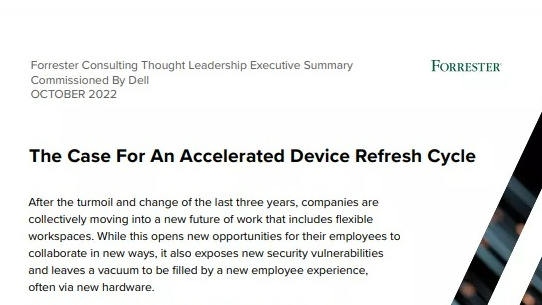Businesses must play proactive role in tackling skills gap, says Institute of Coding
Government-backed Institute of Coding launches to tackle skills and diversity crisis by bringing universities and businesses closer


The director of the government-backed Institute of Coding (IoC) has called on businesses to take a proactive role in bridging the UK's digital skills gap by engaging and re-skilling their existing workforce.
Speaking at the IoC's launch, Dr Rachid Hourizi also took aim at the industry's widely-reported diversity problem, stressing the need for enhancing the cooperation between the industry and higher education to reach parts of the population normally difficult to access.
"We are really enthusiastic for change, we really do want to work out ways to do all of this stuff differently," Hourizi said before industry leaders and academics and at the IoC's launch event hosted at the House of Lords, Westminster.
"We want to drive diversity. We want to encourage a greater number of women into the IT sector - given the ridiculously low statistic in terms of participation we are achieving at the moment - it seems as though it should be eminently possible that 50:50 has to be our target now."
Bringing together more than 60 organisations and 25 universities since the prime minister first announced the 20 million initiative earlier this year, Hourizi told IT Pro the IoC will not stray away from having difficult conversations as it aims to tackle a growing crisis with a predominant focus on higher and further education.
For instance, when seeking to fill gaps in their organisations companies must look inwardly to assess what they can do to reskill or retrain their existing workforce, Hourizi said, rather than solely relying on young university graduates to plug existing gaps.
He stressed the need for the UK to embrace the notion of 'lifelong education', which will be essential for imparting digital skills to the wider population, but acknowledged that entering education in later life is far less accessible, given not only the added responsibilities but high-cost burden.
Sign up today and you will receive a free copy of our Future Focus 2025 report - the leading guidance on AI, cybersecurity and other IT challenges as per 700+ senior executives
Joining Hourizi, Tech UK president Jacqueline de Rojas, who will be serving as co-chair of the IoC, defined the organisation as one set up to tackle these issues in a manner previously unseen; liaising between businesses, who may be running highly promising initiatives in isolation, to feed into a more joined-up national strategy.
"If this experience, with all these boards and this landscape, has taught me anything it's that this industry has so much more to give.
"For sure this is a nation of inventors, and there is no doubt innovation is at the heart of our future, and it is our job to make sure digital adoption is high. There is no question that the nations that will thrive are those that adopt digital for everybody and across all regions."
The IoC will build and maintain partnerships between universities and businesses to boost learning opportunities, its leaders say, also hoping to routinely publish new research and analysis that can fuel new strategies to raise workplace diversity and achieve gender equality.
"When we look at our skills gap across our industry and the uncertainty that our negotiations with our near neighbours are creating we will have to think about how we grow the domestic talent pipeline much harder and faster than we are today, and so it is becoming much more of an industry imperative," de Rojas continued.
"And one of the reasons that we are excited about the IoC is that it brings together the idea of academia and business working together with learners to create pathways to skills which currently don't exist.
"And if there's one thing that's super exciting about the technology industry in this country that sets it apart from any other is that we stand on the shoulders of each other. And that, right there, is the difference between us and Silicon Valley."
Hourizi also cited a number of initiatives already in action, with pilots underway and new programmes of study in the pipeline. Microsoft has been collaborating with London's City University, for example, to combine degree education and professional certification in a unique way, while the University of West Midlands has launched a 'tech hub' to engage companies.
The IoC, in its partnerships with universities, will be rolling out masters courses, degree apprenticeships and shorter courses - hoping to see results manifesting as more students enrolling onto digital skills courses in the years to come. It is also hoping to expand learning possibilities with schemes such as online learning or learning while in work.
"At their best universities can be incredible launchpads for lifelong learning, and can contribute not only to the supply of individuals but also to the continual development of those people and that's what universities should be about," said Bernie Morley, Deputy Vice-Chancellor University of Bath.
"This idea of the transformative power of education for the public good. And that's what the IoC is about.
"It's about developing those skills in everybody, maintaining those skills - it's such a fast-moving area that our development beyond university is just as important as our development up to and including university and its linking all of that together that is absolutely crucial."

Keumars Afifi-Sabet is a writer and editor that specialises in public sector, cyber security, and cloud computing. He first joined ITPro as a staff writer in April 2018 and eventually became its Features Editor. Although a regular contributor to other tech sites in the past, these days you will find Keumars on LiveScience, where he runs its Technology section.
-
 'Digital hide-and-seek': Workers are wasting hundreds of hours a year sourcing the information they need to carry out their role
'Digital hide-and-seek': Workers are wasting hundreds of hours a year sourcing the information they need to carry out their roleNews Knowledge workers globally are wasting a quarter of their working week tracking down information, new research from Atlassian has revealed.
-
 Untethered: How CIOs and CISOs are paving the way for the new hybrid workforce
Untethered: How CIOs and CISOs are paving the way for the new hybrid workforceWhitepaper Effective techniques to transition from exposed legacy infrastructure to an effective zero trust strategy
-
 Unlocking the power of your digital services
Unlocking the power of your digital servicesSponsored Businesses have invested significant cash into technology since COVID-19, but are they really getting their money's worth?
-
 Delivering fast and secure digital experiences for the modern hybrid workforce
Delivering fast and secure digital experiences for the modern hybrid workforceWhitepaper A new approach to digital experience monitoring that can monitor the health of all systems
-
 Collaboration is the glue that holds your business together
Collaboration is the glue that holds your business togetherSPONSORED A combination of productivity tools and cloud telephony can enable the best from your workforce
-
 The future of work and the forgotten workforce
The future of work and the forgotten workforcewhitepaper How to deploy a mobile-first strategy so no one gets left behind
-
 The case for an accelerated device refresh cycle
The case for an accelerated device refresh cycleWhitepaper Achieving a more cost-effective device lifecycle overall
-
 Employees are choosing how they work
Employees are choosing how they workWhitepaper And with the right secure digital strategy, this could be a great thing for your business: today and far into the future

